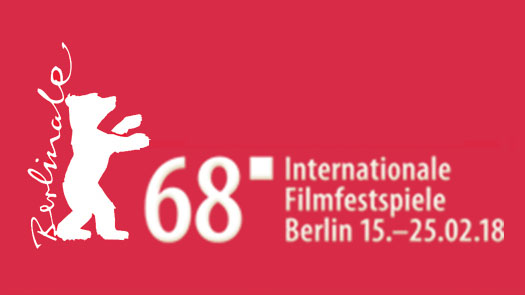7 Days in Entebbe press conference with Daniel Brühl, Rosamund Pike and director José Padilha
7 Days in Entebbe takes place in 1976, when Palestinian radicals teamed up with two German anti-capitalist revolutionaries, Brigitte (Rosamund Pike) and Wilfred (Daniel Brühl), to hijack an Air France plane with Israeli passengers. They hold them ransom in Uganda under the dubious supervision of Idi Amin for a week before the Israeli military intervene. Director José Padilha and his cast discussed the ethical and political challenges of recreating such a divisive moment in contemporary Gaza politics.
What motivated you to tell this story?
José Padilha: This story started with [producers] Ron Halpern and Tim Bevan and I think it was a great idea because they thought there was a narrative in this story that was missing. Most of the other movies are told from a military perspective and they show you a history of heroism, a gigantic military feat and they ignored the interaction between the hijackers and hostages and also the political aspects in Israel. When you look at Rabin and Peres [Israeli Prime Minister and Defence Minister] and you look at the dynamics there you realise how difficult it is for a politician in Israel to negotiate.
For an Israeli soldier, to be brave is to do what Yoni [a character in the film] did. Get on the plane, risk your life to save your countrymen. For an Israeli politician, to be brave is to do what Rabin did: sit down with the other side and find a way to negotiate.
How did you film the final shootout between the Israeli commandos and the hijackers while remaining truthful when there are so many conflicting accounts of what actually happened?
JP: Truth doesn’t need defence, Lies need defence. When I shot the sequence, I had Amir Ofer who was the first commando to enter the terminal. When I put the marks for the actors for that final sequence, the commandos who were present at the hostage rescue mission helped me recreate that reality. Now, I respect the versions of all who were actually there because they were first eye-witnesses. The versions of people who were not there are versions of people who were not there.
How did you go about getting into the heads of your characters as actors?
Rosamund Pike: It’s in the gaps, in the realms of doubt where we were able to create characters – in the gaps between the accounts of the IDF soldiers and the hostages. Whether the hijackers didn’t kill anyone because they didn’t have time or because they had a humanitarian impulse, there’s doubt and doubt creates space for drama.
Daniel Brühl: That’s an interesting point. That for me was a crucial moment in the film: was he making a deliberate choice not to kill the hostages? I had to make a choice as an actor so it was so important to have sources and eye witness. Mr Lemoine [an eye witness], next to me, says he remembers that moment so clearly. Of course, you feel a huge responsibility and you are very cautious when it comes to portraying a real character and getting involved in a complex subject matter, but it was all in such good hands because the first conversation I had with José was over an hour. We ended up talking about the current state of German politics and I could feel that this was a man with a strong political conscience.
How did Daniel join the project?
JP: The first time I read the script I thought, right away, it has to be Daniel. I’ve been following Daniel’s career since Goodbye Lenin, so I knew he had familiarity with the left and then I had an engaged, political conversation with him. I wanted to work with actors who understood the Israel-Palestine situation.
Sean Gallen
7 Days in Entebbe is released nationwide on 6th April 2018. Read our review here.
Read more reviews and interviews from our Berlin Film Festival 2018 coverage here.
For further information about the event visit the Berlin Film Festival 2018.

























Facebook
Twitter
Instagram
YouTube
RSS